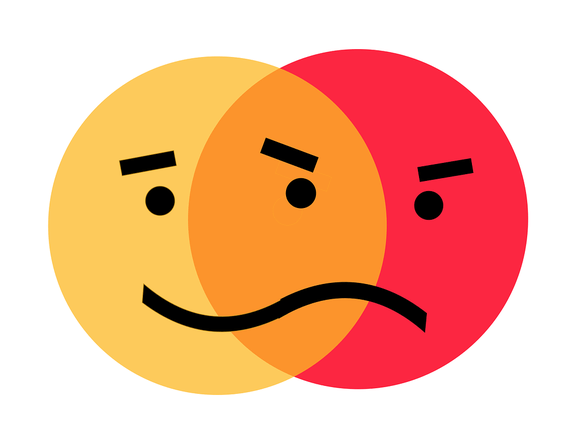Self-acceptance is one of the foundations of a healthy, authentic and fulfilling life. It’s the profound recognition and embrace of your true self. It encompasses all aspects of who you are, both the positive and the negative.
It means acknowledging your strengths and celebrating them. But also understanding and accepting your weaknesses without judgment or criticism.
Self-acceptance goes beyond liking yourself. It’s about owning your experiences, traits, and feelings, even the ones you wish were different.
This level of acceptance comes from the belief that your worth is intrinsic and not dependent on external achievements or the approval of others.
So, you stop seeking external validation and focus on being the best version of yourself. This allows you to improve from a place of compassion and self-love, and focus on your journey.
With self-acceptance, you cultivate a stable foundation of self-respect and inner peace. This allows you to navigate life’s challenges with greater authenticity.
If you’re struggling with this, know you’re not alone. Many people face self-doubt and feelings of inadequacy. But, developing this attitude is possible and worth the effort.
In this post, we’ll explore the significance of self-acceptance and its impact on life. We will address misconceptions and barriers, providing strategies for overcoming them. Finally, we’ll discuss the benefits of embracing one’s true self for personal growth.
Let’s get started!
The Benefits of Self-Acceptance
Learning to accept yourself brings many benefits to your life.
Enhanced Mental Health
One of the most significant benefits of self-acceptance is your improved mental health.
Reducing negative self-talk and criticism can help prevent mental health issues. Thus, you are less likely to engage in these, leading to a more positive outlook on life.
Moreover, you feel more positive emotions, like confidence, compassion, and self-love. When you appreciate who you are, you can define your values, goals, and priorities. In turn, this leads to greater motivation and success.
Improved Physical Health
Self-acceptance also has tangible benefits for your physical health. By reducing stress, you lower the risk of stress-related illnesses, such as:
- Heart disease
- High blood pressure
- Chronic pain
Greater Resilience
According to the American Psychological Association:
Resilience is the process and outcome of successfully adapting to difficult or challenging life experiences, especially through mental, emotional, and behavioral flexibility and adjustment to external and internal demands.
Self-acceptance can have a remarkable impact on your resilience. You move forward with confidence and the ability to handle adversity.
By accepting your authentic self, you cultivate resilience in the face of uncertainty. Challenges become opportunities for growth, rather than threats to your self-worth.
Healthier Relationships
It can positively impact your relationships, because you stop seeking validation from others. This leads to more genuine interactions and deeper connections.
When you are comfortable with yourself, you are more open to accepting and loving others as they are.
Increased Life Satisfaction
Incorporating self-acceptance into your life can have a far-reaching impact on your well-being.
When you are content with who you are, you experience a sense of fulfillment in various aspects of your life. By recognizing and valuing your true self, you pave the way for a healthier and happier life.

Diverse Views on Self-Acceptance
- Psychological: This viewpoint emphasizes its role in mental health and emotional well-being. It highlights how self-acceptance can reduce anxiety, depression, and stress.
- Societal: Societal influences play a significant role. This explores how cultural norms, media, and social expectations impact your ability to accept yourself.
- Practical: Daily practices can enhance self-acceptance. This focuses on practical strategies that foster a more accepting attitude towards oneself.
- Philosophical: These approaches delve into concepts from various philosophical traditions. It examines how ancient and modern philosophies view self-acceptance and its importance for a fulfilling life.
- Personal: Personal stories and testimonials provide a relatable view of self-acceptance. This shares individual experiences and journeys, illustrating the transformative power of accepting yourself.
- Therapeutic: This discusses various therapeutic approaches that support accepting yourself.
Common Misconceptions
Self-acceptance is often misunderstood. Here are some common misconceptions that might hold you back:
– Self-acceptance means giving up on personal growth. It’s not about settling for mediocrity. You learn to accept your current reality while striving for positive change.
– Accepting yourself is selfish. It isn’t. Embracing yourself allows you to be more compassionate toward others.
– It means accepting everything about yourself. You can work on changing negative behaviors without rejecting yourself.
– Self-acceptance means being perfect. It’s about accepting your imperfections as a natural part of being human.

Self-Acceptance is Vital for Personal Growth
Self-acceptance allows you to build a solid foundation of self-awareness and self-compassion.
By embracing who you are, you can develop an inherent self-worth that isn’t dependent on external validation. This frees you from having to meet unrealistic standards or societal expectations. And, it allows you to focus on genuine self-improvement.
Recognizing your strengths and weaknesses without judgment fosters a positive and realistic self-view. This mindset allows you to learn from experiences.
Self-acceptance also involves recognizing and challenging limiting beliefs. This shift not only boosts your self-esteem, but also promotes emotional well-being. In essence, it empowers you to live a more fulfilling life. You can pursue your goals without self-imposed limitations slowing you down.
Thus, self-acceptance is vital for personal growth, because it allows you to approach your journey with an open heart. It helps you accept all facets of your being and strive towards your true potential.
Related article: 5 Effective Strategies to Develop Self-Acceptance
Overcoming Barriers to Self-Acceptance
Self-acceptance isn’t always easy, many people struggle with a negative self-image. Here are common barriers to acceptance and practical tips to overcome them:
Comparison to Others
It’s easy to fall into the trap of comparing yourself to others and feeling inadequate. Instead, focus on your unique qualities and strengths. Remember, everyone’s journey is different, and comparing your progress to others is unproductive.
Fear of Rejection
Fear of rejection can prevent you from showing your true self. To overcome this, build relationships with people who accept you as you are. Work on boosting your self-esteem and confidence to diminish this fear.
Societal Expectations
Society often imposes ideals and standards, pressuring you to conform. This pressure can make you feel inadequate if you don’t fit the mold.
For instance, societal beauty standards can lead to a negative self-image. Recognize these pressures and practice self-compassion and self-acceptance instead.
Recognizing and overcoming these barriers requires self-awareness and letting go of limiting beliefs. It also involves self-compassion. And, while it can be challenging, the benefits make the effort worthwhile.
Inner critic
Your inner critic is the voice in your head that judges and criticizes you.
This inner dialogue can be harsh and unforgiving. It often amplifies your flaws and mistakes, while undermining your strengths.
To overcome this, start by recognizing when your inner critic speaks. Then, challenge those negative thoughts. Replace them with affirmations of your worth and capabilities.
By focusing on these, you can quiet the inner critic and foster a positive self-view.
Related article: Self-Judgment: The Basics
People pleasing
This is the habit of prioritizing others’ needs and approval over your own.
Seeking validation from others may lead you to neglect your own desires and values. This results in a lack of confidence and a diminished sense of self-worth.
To overcome it, practice setting boundaries and saying no when necessary. Focus on what matters to you, and allow yourself to be authentic. Remember, you can’t please everyone, and that’s okay.
Embracing your own needs and values is a crucial step towards genuine self-acceptance.

Final Words
This practice requires time and effort, like everything worth achieving. But the rewards—higher self-esteem, confidence, and a positive mindset—make it well worth the effort.
Use your self-awareness to recognize the barriers to self-acceptance. Then, develop strategies for building a more positive self-image.
Embracing self-acceptance is an important step towards a healthier, more authentic life. It’s a crucial step on the path to personal growth and happiness. So, appreciate your inherent worth and embrace your unique journey.


0 Comments